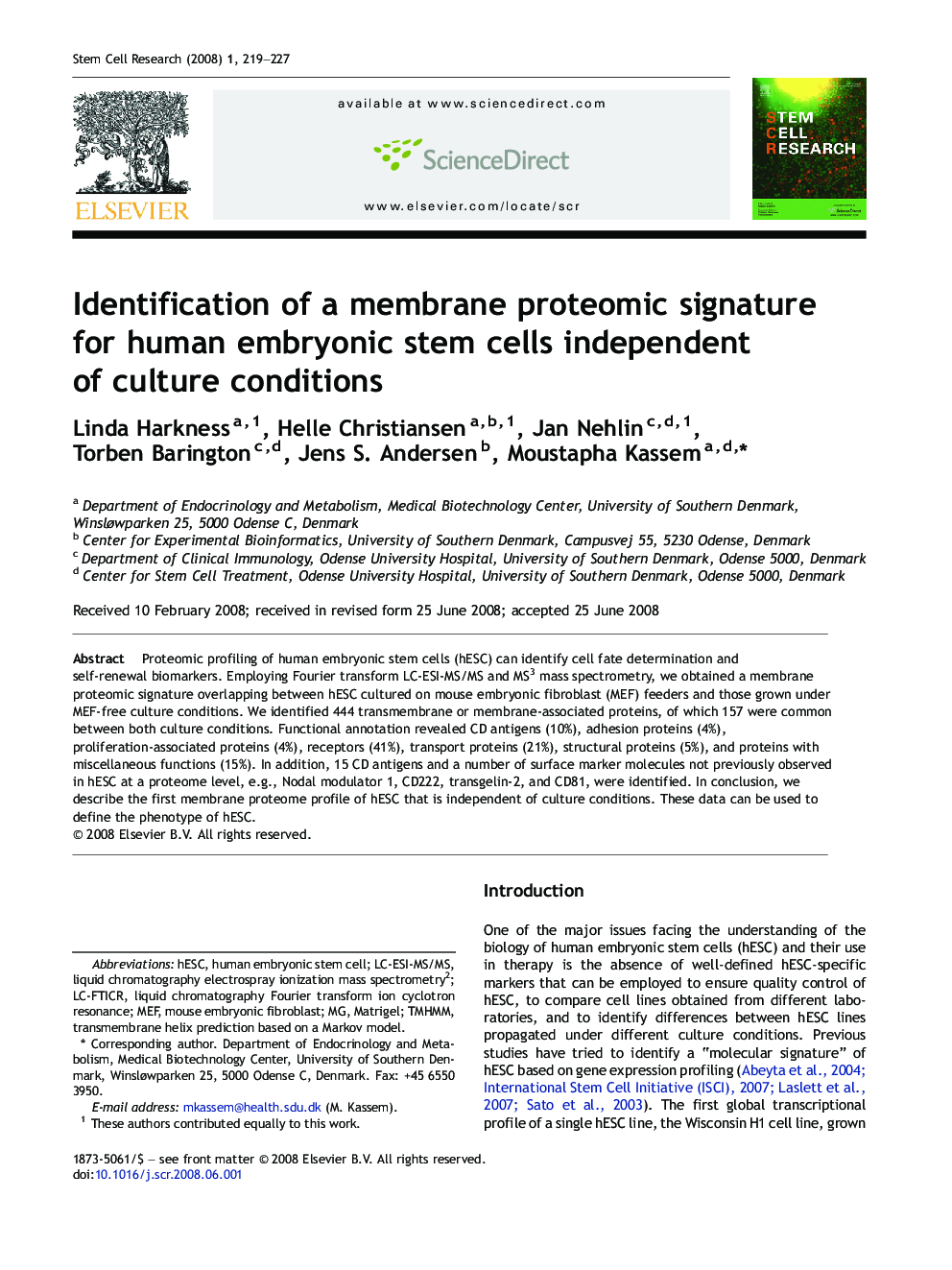| Article ID | Journal | Published Year | Pages | File Type |
|---|---|---|---|---|
| 2094434 | Stem Cell Research | 2008 | 9 Pages |
Proteomic profiling of human embryonic stem cells (hESC) can identify cell fate determination and self-renewal biomarkers. Employing Fourier transform LC-ESI-MS/MS and MS3 mass spectrometry, we obtained a membrane proteomic signature overlapping between hESC cultured on mouse embryonic fibroblast (MEF) feeders and those grown under MEF-free culture conditions. We identified 444 transmembrane or membrane-associated proteins, of which 157 were common between both culture conditions. Functional annotation revealed CD antigens (10%), adhesion proteins (4%), proliferation-associated proteins (4%), receptors (41%), transport proteins (21%), structural proteins (5%), and proteins with miscellaneous functions (15%). In addition, 15 CD antigens and a number of surface marker molecules not previously observed in hESC at a proteome level, e.g., Nodal modulator 1, CD222, transgelin-2, and CD81, were identified. In conclusion, we describe the first membrane proteome profile of hESC that is independent of culture conditions. These data can be used to define the phenotype of hESC.
